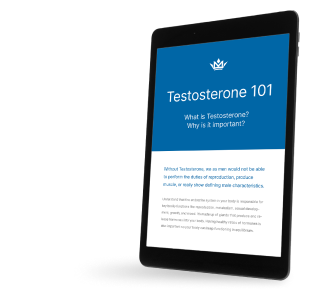Introduction
A recent report from the World Obesity Federation (WOF) has projected that over 4 billion people will be obese by 2035. That’s more than half the world’s population. Worldwide changes in diet and an increase in sedentary behavior are the biggest culprits.
While dietary changes and exercise can help you maintain a healthy weight, new weight loss treatments are emerging all the time. One of the newest is semaglutide, which you may know under the brand name Ozempic®. Initially used as a diabetes medication, semaglutide has made headlines as an anti-obesity wonder drug, touted by everyone from Elon Musk to Boris Johnson. But is it safe?
Read on to explore the connection between semaglutide and weight loss, how the medication works, and side effects to consider.
Key takeaways:
- Semaglutide is an effective weight loss medication when combined with diet and exercise and used long term.
- It is a glucagon-like peptide-1 (GLP-1) receptor agonist, which targets receptors in the brain and the gut to lower appetite and reduce food consumption.
- Initially intended to treat type 2 diabetes, semaglutide also controls insulin release to lower blood sugar; it was approved in 2021 to treat weight loss in obese individuals or people who are overweight with one additional weight-related condition.
- Semaglutide may cause GI upset, headaches, and fatigue, but slowly increasing the dosage over time should lessen these symptoms.
What is semaglutide?
Semaglutide belongs to a class of drugs known as glucagon-like peptide-1 (GLP-1) receptor agonists. It targets GLP-1 receptors in the brain and the gut, which help to regulate your appetite and how much you eat. Taking semaglutide can result in you eating less and feeling fuller when you do eat.
Developed by the Danish pharmaceutical company Novo Nordisk, the medication was approved by the FDA in 2017 to treat type 2 diabetes by helping to control blood sugar when combined with diet and exercise. In 2021, it was approved for chronic weight management in obese adults with a BMI higher than 30. It is also available for overweight adults with a BMI of 27 or higher as long as they have another weight-related condition, like high blood pressure or sleep apnea
How does semaglutide work for weight loss?
As a GLP-1 receptor agonist, semaglutide targets the GLP-1 receptors in the brain that regulate appetite. It prompts your brain to tell your body that it’s not hungry, even if you’re consuming fewer calories. It also mimics a natural hormone in the body named incretin, which is primarily made in the digestive tract in response to nutrient ingestion. This sets off a chain reaction involving two different hormones in the body: insulin and glucagon.
How does semaglutide help you lose weight?
- Taking semaglutide prompts the pancreas to release insulin, which incretin does when blood sugar levels are high. This lowers the blood sugar level.
- The medication also inhibits the release of glucagon from the pancreas, which is a hormone that causes the liver to release its stored carbohydrate and sugar into the bloodstream. Sugar is then allowed to move into other body tissues where it is used for energy, helping to reduce body fat.
- At the same time, semaglutide slows glucose absorption into the bloodstream by reducing the speed at which the stomach empties after eating. This makes you feel more satisfied after a meal.
Studies on semaglutide and weight loss
Studies have shown that semaglutide is an effective weight loss drug when combined with diet and exercise. In a 2021 study of nearly 2,000 obese adults, researchers compared people who combined semaglutide with diet and exercise to people who made the same lifestyle changes without semaglutide. After 68 weeks of treatment, half of the participants using semaglutide lost 15% of their body weight, and nearly a third lost 20%. But participants who only made lifestyle changes lost just 2.4% of their weight.
In a 2022 trial called the STEP 5, overweight or obese adults who took semaglutide experienced substantial, sustained weight loss over 104 weeks versus placebo. The mean change in body weight from baseline to week 104 was -15.2% in the semaglutide group, with more participants in the semaglutide group than in the placebo group achieving weight loss ≥5% from baseline by the end of the trial.
How fast does semaglutide work for weight loss?
While you may see some weight loss in the first 4 weeks of semaglutide treatment, the full effect can take several months. As the above study shows, it took 68 weeks for most adults to lose 15-20% of their body weight. In a more recent 2022 study of 175 patients, total weight loss percentages achieved were 5.9% at 3 months and 10.9% at 6 months.
How long do you stay on semaglutide for weight loss?
With long-term use, semaglutide has been shown to help people lose weight and keep it off for over one year when combined with diet and exercise. Short-term use is not recommended. In a 2022 study published in the journal Diabetes, Obesity and Metabolism, participants who stopped taking the medication regained two-thirds of their prior weight loss, with similar changes in cardiometabolic variables within one year.
Side Effects and Considerations
Some side effects may occur when taking semaglutide for weight loss. These include:
- Dizziness
- Fatigue
- Gastrointestinal issues, such as diarrhea and constipation
- Headache
Your doctor will typically start you off with a low dosage and increase it gradually to help lessen these side effects.
You should avoid semaglutide if you have a history of medullary thyroid cancer, gallbladder disease, pancreatitis, or multiple endocrine neoplasia syndrome type 2 (MEN2).
The bottom line: When combined with diet and exercise, semaglutide is an effective weight loss treatment for long-term use.
Semaglutide helps people lose weight when the medication is used long term and combined with diet and exercise. Its unique function as an incretin mimetic helps to reduce appetite and slow digestion, leading to significant fat loss.
While the medication was initially prescribed as an injectable for diabetics, it is now available in oral form for those who are obese or overweight with at least one other weight-related condition. If you’re thinking of using semaglutide, be sure to consult your healthcare provider to see if this medication is right for you. It may take some time to experience the drug’s full effect, but you can start improving your diet and exercising today.
References
- https://www.worldobesityday.org/assets/downloads/World_Obesity_Atlas_2023_Report.pdf
- https://www.insider.com/ozempic-celebrities-denied-semaglutide-wegovy-weight-loss-drugs-khloe-kardashian-2023-3
- https://www.fda.gov/news-events/press-announcements/fda-approves-new-drug-treatment-chronic-weight-management-first-2014
- https://www.keckmedicine.org/blog/ozempic-for-weight-loss-los-angeles
- https://medlineplus.gov/druginfo/meds/a619057.html
- https://www.ncbi.nlm.nih.gov/pmc/articles/PMC8736331
- https://www.nejm.org/doi/10.1056/NEJMoa2032183
- https://pubmed.ncbi.nlm.nih.gov/36216945/
- https://www.drugs.com/medical-answers/semaglutide-work-weight-loss-3573689/
- https://jamanetwork.com/journals/jamanetworkopen/fullarticle/2796491
- https://dom-pubs.onlinelibrary.wiley.com/doi/10.1111/dom.14725
- https://www.uclahealth.org/news/semaglutide-weight-loss-what-you-need-know








